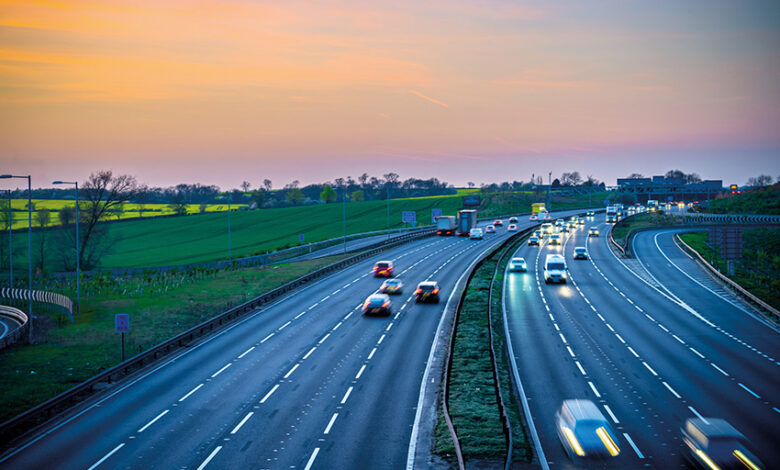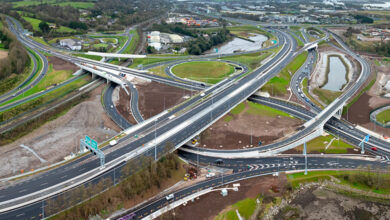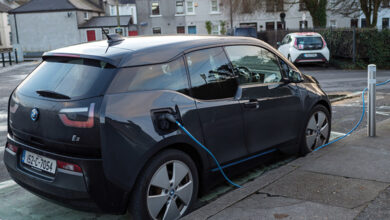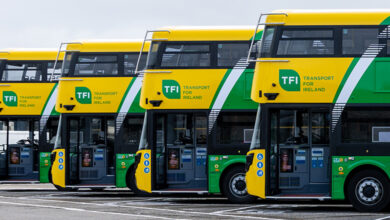OECD: Ireland ‘car dependent by design’

An OECD report has determined that the Irish transport system fosters growing car use and emissions by design and is thus unfit to enable the country to meet its greenhouse gas reduction goals while improving wellbeing.
Published in late 2022, Redesigning Ireland’s Transport for Net Zero: Towards Systems that Work for People and the Planet states that the State’s transport system is characterised by three “undesirable dynamics”. These are induced car demand, urban sprawl, and the low attractive trap of sustainable modes of transport.
The OECD additionally states that the policies announced in the Climate Action Plan will not reduce Ireland’s CO2 emissions enough to meet the emissions targets as it does not adequately reform the State’s transport system away from a reliance on private car transport.
Key observations
The OECD report makes five broad observations for the State for it to embrace a transport system compatible with Ireland’s climate commitments.
The first observation is that the Irish transport system fosters growing car use and emissions by design, rendering it unfit to enable the State to meet its greenhouse gas reduction goals while improving wellbeing. “Growing car use in Ireland is largely determined by car-dependent transport and urban systems, organised around increased mobility and characterised by three unsustainable dynamics: induced car demand, urban sprawl, and the sustainable modes low-attractiveness trap,” the report states.
The second observation in the report is that aiming at decarbonising the transport system via private vehicle improvements is unlikely to lead to substantially different patterns of behaviour, rapid emissions reductions, and large well-being improvements. “Car-dependent systems make rapid electrification slow and difficult, by locking-in large and growing vehicle fleets. Even with improved (and fully electric) vehicles, they also fail to reduce life-cycle emissions, address accessibility gaps and other negative impacts (e.g., road fatalities).”
Published before the publication of Climate Action Plan 2023, the third observation made by the OECD is that government policies implemented thus far and those expected to bring the highest emission reduction shares according to Ireland’s Climate Action Plan 2021 are unlikely to help the country transform its car-dependent system. “Most efforts in Ireland have been allocated to policies with a low to medium potential to transform the current system (e.g., electric vehicle incentives for private cars, increasing the budget allocated to public transport infrastructure compared to what is allocated to car infrastructure, carbon and road prices, infill/brownfield development targets). Currently prioritised policies, such as electric vehicle incentives, also reinforce car dependency, further locking the country into a system that fosters growing car use and emissions by design.”
More encouragingly, the OECD highlights the scope for “enormous opportunities by prioritising policies with a high potential for transforming its car-dependent system”. “While taking different shapes, transformation of the transport system away from car dependency is possible in different types of territories (e.g., Dublin, Cork, Sligo, and Kildare).”
The fifth broad observation made by the OECD is that policies with a high transformative potential include road space reallocation, the mainstream of on-demand shared services and communication efforts to address car-centric mindsets. “Currently, these policies are marginal and implemented on a small scale. The recently issued [2022] Sustainable Mobility Policy increases the centrality of transformative policies, reflecting an effort towards transformative change,” the report outlines.
Four recommendations
The report makes four key recommendations to alleviate the issue. Firstly, it states that the Government should redefine the goal of the transport system as “sustainable accessibility”, with complimentary recommendations of revisiting measurement frameworks and models, as well as setting a sustainability goal for planning.
Secondly, the report states that the Government should prioritise the scaling up of policies which can help move Ireland away from its car-reliant system, ensuring that sustainable modes of transport are the first choice for a bulk of trips.
Third, Ireland needs to redefine its electrification strategy to support the transition towards a sustainable transport system, outlining that a target should be set for people in terms of kilometres travelled.
Fourth and finally, the report says that the Government needs to embrace a systemic approach to policy decision-making across government departments, stating that there needs to be “shared understanding of root causes by all stakeholders and to expose ingrained ideas that hinder progress”.
Government consideration
At the time of the report’s publication, Minister for Transport Eamon Ryan TD said that the report’s findings will continue to inform both the Department’s public engagement activity, and the measures to be implemented over the coming period.
“The report’s findings on what are the most impactful and transformative measures, which will also increase people’s wellbeing, strongly reflect and support what we are seeking to deliver overall through our Sustainable Mobility Policy, the work of our Leadership Group and [the] ‘Pathfinder Programme’.
“The scale of the challenge we face in decarbonising transport, as highlighted in this report, will not be easy and will require a truly transformative level of behavioural and systems change over years. The perspective in this report is rightly on making changes now that will deliver a net zero future for transport to 2050.
“The longer-term focus should be on reducing demand and systemic changes that address car dependence. I would also reinforce, however, the need to continue our focus on electrification of our passenger and public transport fleet, as set out in our Climate Action Plan, as an appropriate measure for the medium term to 2030.”





